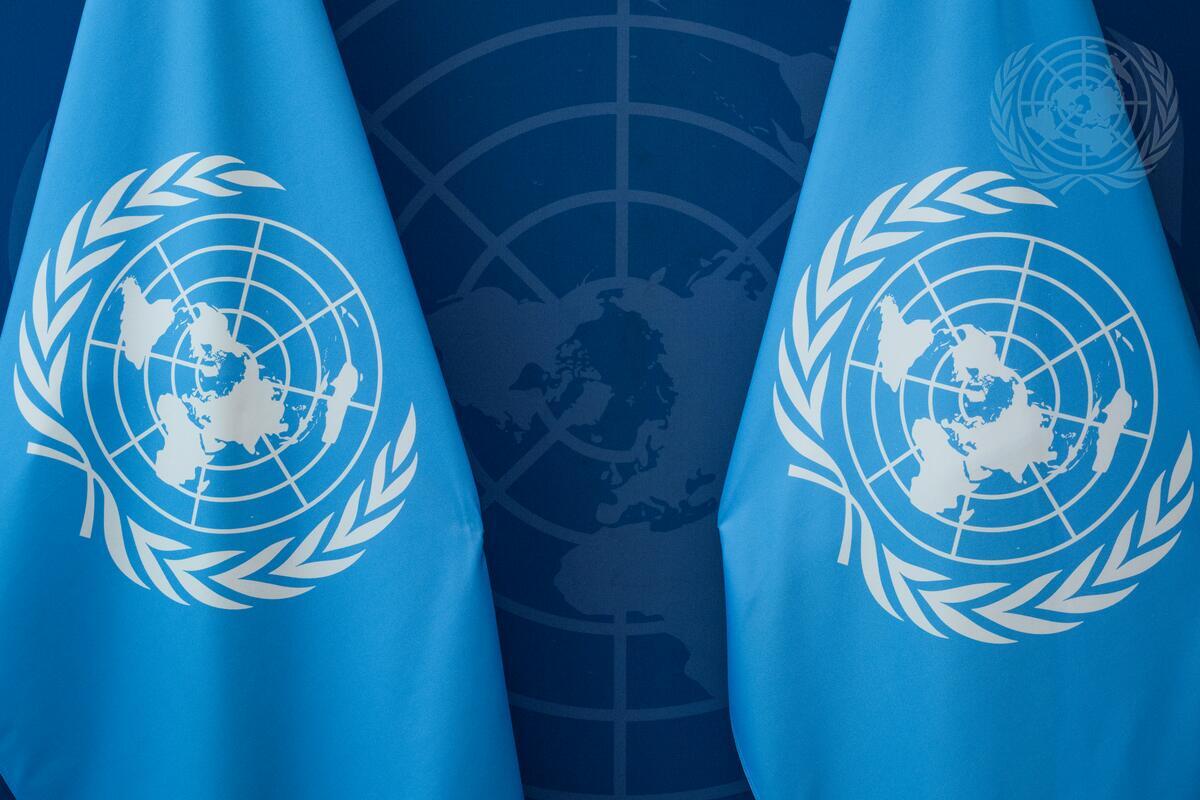Fifth session of the Forum on Human Rights, Democracy and the Rule of Law - 13/14 October 2025

Between the 13th and 14th of October 2025, the fifth session of the Forum of Human Rights, Democracy and the Rule of Law was held in Geneva, with the theme “Democracy and climate change: focusing on solutions”.
The appointed Chair of the fifth session of the Forum, by the Human Rights Council, was H. E. Mr. Ioannis Ghikas, Permanent Representative of Greece at the United Nations Office at Geneva.
Alongside the main events and panels, various side events were also held. For example, the screening of the documentary “Yumi: the whole world”, an event organized by UNICEF. OHCHR and CRIN named “Right here, right now: Children, Democracy and Climate Action”, etc, and a series of artistic activities organized with AwareNearth.
During day 1 of the Forum the theme was “Democracy and climate change: focusing on solutions”. Throughout the day various speakers presented opening statements, the programme of work for the session was adopted, and the Forum held 3 panel discussions on various topics (with the contributions of UN representatives, climate change experts, State officials, academia, and civil society) regarding the relationship between climate change and human rights, democracy, and the rule of law.
Ioannis Ghikas during his opening statement said that climate change is “not only an environmental challenge; it was a human and democratic one”.
Volker Türk, United Nations High Commissioner for Human Rights, said the climate emergency is a wake-up call for more participatory and effective governance, based on human rights. Recognising the link between climate change and human rights could guide the world towards a more sustainable future. 3 main goals must be reached for this to happen: an open civic space; budgets anchored in human rights; and a concerted push at the global level for effective global action and justice.
Panel 1: “Climate change in a rule of law(less) context: a foresight exercise”
This panel covered various topics, such as the future threats of global warming and the climate crisis in the Global South, the necessity of fair and equitable development models, the projected impact on climate change on vulnerable population groups, etc.
Panel 2: “Participation, accountability, and fundamental freedoms - key enablers of a climate-just world”
This panel covered various topics, such as applying a human rights perspective to climate governance, the threats of mis- and dis- information on climate action, the need to include youth, indigenous peoples, human rights defenders and other vulnerable groups in climate governance.
Panel 3: “Reimagining climate governance: how current governance fits (or does not)”
This panel covered various topics, such as the impact of international agreements, and the rulings of legal bodies, on climate governance and justice.
Regarding this first day, summaries of the public meetings can be found here, webcasts of the public meetings can be found here, while opening statements, discussions and closing statements can be found here.
During day 2 of the forum the theme was “Democracy and climate change: focusing on solutions”. Throughout the day, 3 further panel discussions were held.
Panel 4: “Legal clarity, democratic defence, and creativity”
This panel covered various topics, such as the impact of recent legal decisions and initiatives on climate justice pursued by the International Court of Justice, regional courts in the Americas and in Africa, and parliaments around the world.
Panel 5: “Harmony with nature: prioritising solutions that advance human rights, including the right to a healthy environment”
This panel covered various topics, such as the role played by democratic institutions in enforcing legal frameworks on climate change; the importance of access to health care in achieving a just transition and the impact of climate change on indigenous peoples’ rights.
Panel 6: “Interconnected solutions for interconnected problems”
This panel covered 3 main issues: systemic transformation, rights holders, and rights-based solutions. Various testimonies regarding the links between climate change and children, youth rights, artificial intelligence, etc were shared.
In closing, Ioannis Ghikas, stated that the Forum, regarding this year's challenge: climate change, had confirmed its unique role as a platform which connected democracy, human rights, and the rule of law.
The Forum proved that democracy, human rights, and the rule of law are not obstacles to climate action, rather are its strongest enablers.
Regarding this second day, summaries of the public meetings can be found here, webcasts of the public meetings can be found here, while opening statements, discussions and closing statements can be found here.

